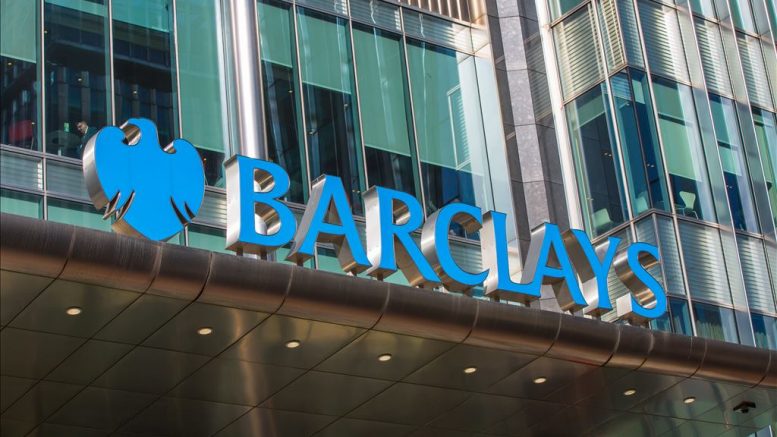Glasgow is cost-friendly, has a good workforce – and might be in the EU when independent, staff reporters are told.
Barclays’ headquarters in London could be in name only in a post-Brexit world, according to plans seen by Chief-Exec.com, which outline Glasgow as a new hub of operations.
IT staff at the bank’s Canary Wharf London office were first alerted last month when several hundred redundancy notices were accidentally sent out by email. A separate source told Chief-Exec.com that a Scottish base of operations would complement enlarged offices in New York, and Pune, India – with existing bases in London and northern England.
The bank has taken a short-term lease on premises in Uddingston, south-east of Glasgow, as plans develop for a purpose-built site, which would position Barclays more favourably after Brexit negotiations, but also in the event of Scotland achieving independence from Westminster, a source who asked not to be named, said. This would give the financial group leverage in bypassing any jurisdictional restrictions imposed on London under future Article 50 agreements. There have not yet been any formal negotiations on financial regulations after Brexit.

The bank’s trading desks in Dublin and Frankfurt have already been bolstered in anticipation of onerous Brexit terms.
Philip Hammond this week reasserted his support for the City of London in Brussels, saying the EU had made no credible proposals for a post-Brexit regulation of financial services.
The UK is pushing for a divergence of rules that would leave market access open. However, Michel Barnier, the EU’s chief negotiator, has ruled out a system of “mutual recognition”, where each side would formulate its own rules while agreeing to recognise the other’s.
The chancellor, speaking at his annual Mansion House address in the City of London on Thursday, said the EU’s existing “equivalence” arrangements were “piecemeal, unilateral and unpredictable”.
Numerous asset managers and financial services groups have opened offices in Dublin and Luxembourg in particular, but there is little evidence that any other company has viewed a future independent Scotland as a possible access route to EU markets.
Barclays announced last month that it would open a large office in Pune, employing 8,000 people, to carry out back-office work. The Barclays Global Services Centre will be the group’s second-biggest facility after Canary Wharf.
The Barclays Technology Campus is based at Knutsford in the north of England and is described as a vital strategic centre – “our transatlantic command centre and one of the largest centres for information security in the UK”.
The scope of any Scottish hub has yet to be revealed, but is likely to employ several thousand people. “Nothing is a done deal until they start moving people,” said the Barclays source, “but Glasgow is cost-friendly, has a good workforce – and might be in the EU when independent.”
There was no official comment from Barclays at the time of publication.
Another unintended consequence of Brexit?
The Barclays development is significant because it appears to see an independent Scotland in the EU as a possible option, writes Murray Ritchie.
Watching banks moving from the City of London to Glasgow or Edinburgh because of EU passporting rules governing financial services after Brexit is the stuff of dreams for the independence movement in Scotland.
Ever since the UK (but not Scotland) voted for Brexit there has been alarm in the City about Brussels excluding it from the single market in financial services. If London, Europe’s biggest finance trading market, was indeed blocked, there would be a flurry of transfers of headquarters and personnel to other EU capitals.
Some recalcitrant Brexit supporters – who are in a minority in London and an even smaller minority in the City – argue that new passporting rules can simply be circumvented by banks and other institutions establishing “brass plate” operations on the Continent.
Their presence would be a front, but a formal and legal one, while the real work would still be done in London.
But the EU long ago saw that coming. Its chief Brexit negotiator, Michel Barnier, warned last year that if Britain leaves the single market, then financial services firms in the UK would lose their passporting rights.
Barnier went on record: “On financial services, UK voices suggest that Brexit does not mean Brexit. Brexit means Brexit, everywhere”.
He made that remark in an address to the Centre for European Reform. Nothing significant has happened since then to change that policy and in the current atmosphere there seems no likely agreement on the passporting issue.
The prospective losses to London are almost unthinkably huge. It has been estimated by the Bank of England that up to 75,000 financial sector jobs could be lost after Brexit. As London’s status as Europe’s top financial sector was diminished more than £70bn in services would be at risk.
Some major institutions have already begun small-scale transfers to European financial centres, including Dublin, Frankfurt and Luxembourg.
Scottish independence supporters watch this with envy. They argue that Scotland – if it remained in the EU as the people overwhelmingly wished in the EU referendum – would have a huge advantage.
Scotland would be the obvious choice destination for transfers of jobs and decision-making if it voted again to remain in the EU. The Barclays development is significant, therefore, because it appears to see an independent Scotland in the EU as a possible option.
Yes supporters in the 2014 failed independence campaign recall with bitterness the role of some of the Scottish-based financial institutions such as Standard Life who said they would transfer their operations to England if the Yes campaign won.
The brass plate argument advanced by former first minister Alex Salmond failed to convince voters that the rules could be overcome. Now the same argument, but this time deployed by the UK and the City, is being knocked back again. Only this time the rebuff is coming from the EU.
The Barclays development signals not just fresh pressure being piled on the UK – another of Brexit’s law of unintended consequences – but a major contribution to the growing constitutional debate north of the border.




